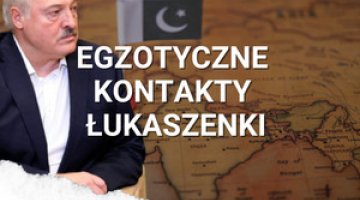Minsk is searching for possibilities normalise relations with the EU
Two Belarusian political prisoners, a former presidential candidate Andrei Sannikau and his aide Zmitser Bandarenka, who had both been sentenced to several years in prison in spring 2011, were released on 14 and 15 April. These two opposition activists were pardoned by President Alyaksandr Lukashenka, who considered their requests following a delay of many months. More than ten political prisoners are still being held in detention in Belarus. The Belarusian president admitted on 5 April that he did not wish to cause a discontinuation of economic co-operation with partners from the EU. For this reason he gave assurances that Minsk would avoid any radical reactions to the further political and economic sanctions imposed by Brussels. In turn, the head of the Belarusian presidential administration, Uladzimir Makey, stated on 17 April that the Belarusian government was ready to resume dialogue with the EU, on condition, however, that the European Union abandon its policy of imposing sanctions.
-
The pardoning of Sannikau and Bandarenka is a sign that after many months of escalating tension the Belarusian government is beginning to search for possibilities to improve its frozen relations with the European Union. The EU economic sanctions, despite their limited nature and the fact that they do not extend to the key Belarusian exporters, have adversely affected the perception of Belarus by trade partners and investors. Minsk fears that escalation of the conflict could lead to a significant restriction of its exports (for example of petroleum products) to EU markets, which would be a major blow to the Belarusian economy (in 2011, goods sold to the EU accounted for as much as 39% of Belarusian exports).
-
Another equally important factor which has forced the Belarusian regime to improve its relations with the EU is the stance adopted by Russia, which granted serious economic support and ensured preferential conditions of oil and gas supplies to Belarus at the end of last year. With the conflict with the West worsening the Belarusian government has been making attempts to receive additional preferences since February this year. However, the Kremlin has confined its actions to political statements. Moscow is still expecting the sale of strategic Belarusian companies to Russian investors and makes any further aid dependent on that.
-
The statements from representatives of the Belarusian government indicate that they are aware of the threat posed by the country’s growing dependence on Russia while its relations with the West are frozen. Nevertheless, it seems unlikely that Alyaksandr Lukashenka could be ready to release and rehabilitate all political prisoners, which is the principal demand from the EU. The Belarusian president has been avoiding situations where his actions could be understood as a sign of weakness and also concessions made under pressure.
- As a result of this, the EU-Belarus dialogue will still be very limited. At the same time, Minsk will be able to capitalise on such moves as the release of Sannikau and Bandarenka in its game aimed at causing individual EU member states to adopt different approaches on Belarus and thus blocking the imposition of further economic sanctions which could adversely affect Belarus’s economic interests.





